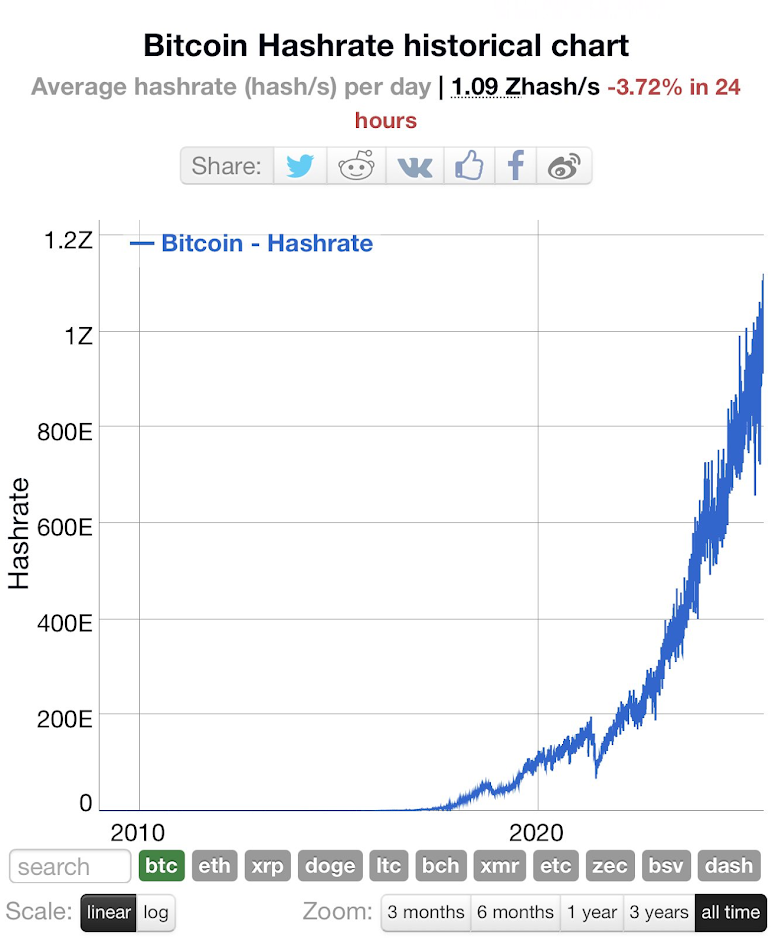Dennis Potter Champions Bitcoin’s Low Fees: Security Concerns Addressed Head-On
Bitcoin's fee structure takes center stage as industry expert Dennis Potter defends its cost-efficiency against mounting security questions.
Cutting Through The Noise
Potter's stance cuts directly against mainstream financial skepticism—positioning Bitcoin's lean transaction costs not as a vulnerability, but as a revolutionary advantage. He argues the network’s security isn’t compromised by lower fees; it’s reinforced by decentralized validation.
Security Vs. Savings: A False Choice?
Why pay more for less? Traditional banking layers fees upon fees, while Bitcoin bypasses the middlemen. Potter highlights how the protocol’s built-in mechanisms prevent double-spends and fraud—without the bloated costs of legacy systems. (Another gentle reminder that your bank quietly charges you for the privilege of holding your own money.)
The Bottom Line
Bitcoin isn’t just cheaper; it’s smarter. As security debates rage, its value proposition only grows stronger—leaving traditional finance scrambling to keep up.

As Bitcoin adoption spreads worldwide, the debate over transaction fees and network security continues to intensify. Low fees make Bitcoin more accessible, particularly in developing countries, but some argue that cheap transactions could eventually undermine the long-term security of the network.
Dennis Potter: Low Fees Are a Positive Force
Bitcoin advocate Dennis Potter believes that low fees are not a weakness but an opportunity.
“Low fees on bitcoin allow for those in developing countries to continue to onboard into Bitcoin’s base chain. People’s lives will be radically changed for the positive who accomplish this feat.”

Potter pointed to the network’s strong fundamentals, emphasizing that miners are currently well-compensated:
“Hashrate ATH. Average reward NEAR ATH. Not a problem. Security intact and growing.”
He also dismissed calls for premature changes to the Bitcoin codebase:
“We can solve the problem when there are signs it’s a problem. Adding code to solve a problem that is more than 10 years away is short term thinking disguised as long term thinking.”
J.Dog’s Reply: A Security Budget Issue Ahead
Responding to Potter, community memberwarned that the issue may not be urgent today but could become serious in the future.
“Short term no this isn’t a problem but in 15 years this becomes a real issue if blocks remain empty.”
He noted that with the Bitcoin halving cutting rewards every four years and many transactions shifting off-chain, miner incentives could weaken.
“If Bitcoin is going to have a high security budget fees must go up & we should be seeing full blocks. Miners aren’t working for free.”
According to J.Dog, building aand driving demand for block space is key to ensuring long-term security.
Bitcoin Hashrate Reaches 1 Zetahash for the First Time in History
Bitcoin recently reached a historic milestone:for the first time in history. One observer explained:
“What this means is that there is more usable power out in the world that has no more productive purpose than mining Bitcoin – because otherwise the owners of that power WOULD do that other thing instead.”
- Also Read :
- September Fed Rate Cut Locked In — But By How Much?
- ,
The massive surge in hashrate signals:
- Security Resilience – A 51% attack is already prohibitively expensive; each additional watt of hash power makes such attacks even less realistic.
- Miner Efficiency – Higher hashrate squeezes out the least efficient miners, forcing them to capitulate or sell BTC, while more efficient miners can afford to hold.
- Shift to Stranded & Dual-Purpose Energy – A growing share of mining uses energy that would otherwise go to waste (like oil rig flare gas) or doubles as heating systems. These miners face lower costs and less pressure to sell their BTC, reducing overall sell pressure on the market.
This dynamic creates a healthier ecosystem, where efficient, sustainable miners dominate and Bitcoin’s price stability benefits from reduced forced selling.
The Road Ahead for Bitcoin
The debate highlights a central question for Bitcoin’s future: should developers take action now to prepare for declining rewards, or wait until signs of strain emerge?
For Potter, the answer is clear: Bitcoin is stronger than ever today, with record hashrate and miner revenue. For critics like J.Dog, ignoring the security budget could risk cracks in the foundation years down the line.
Never Miss a Beat in the crypto World!Stay ahead with breaking news, expert analysis, and real-time updates on the latest trends in Bitcoin, altcoins, DeFi, NFTs, and more.
FAQs
Are low Bitcoin fees a threat to network security?According to Dennis Potter, no. He points to record hashrate and high miner rewards as proof that Bitcoin’s security is intact.
Will Bitcoin fees increase in the future?Many analysts believe fees could rise as block rewards decline after halvings, making transaction fees a bigger part of miner revenue.
What is the Bitcoin security budget?It refers to the total rewards miners earn (block rewards + transaction fees) that incentivize them to secure the network.
Can Bitcoin survive with low transaction fees?Supporters argue yes, as long as miner rewards remain strong. Critics warn fees must rise long-term to maintain network security.


